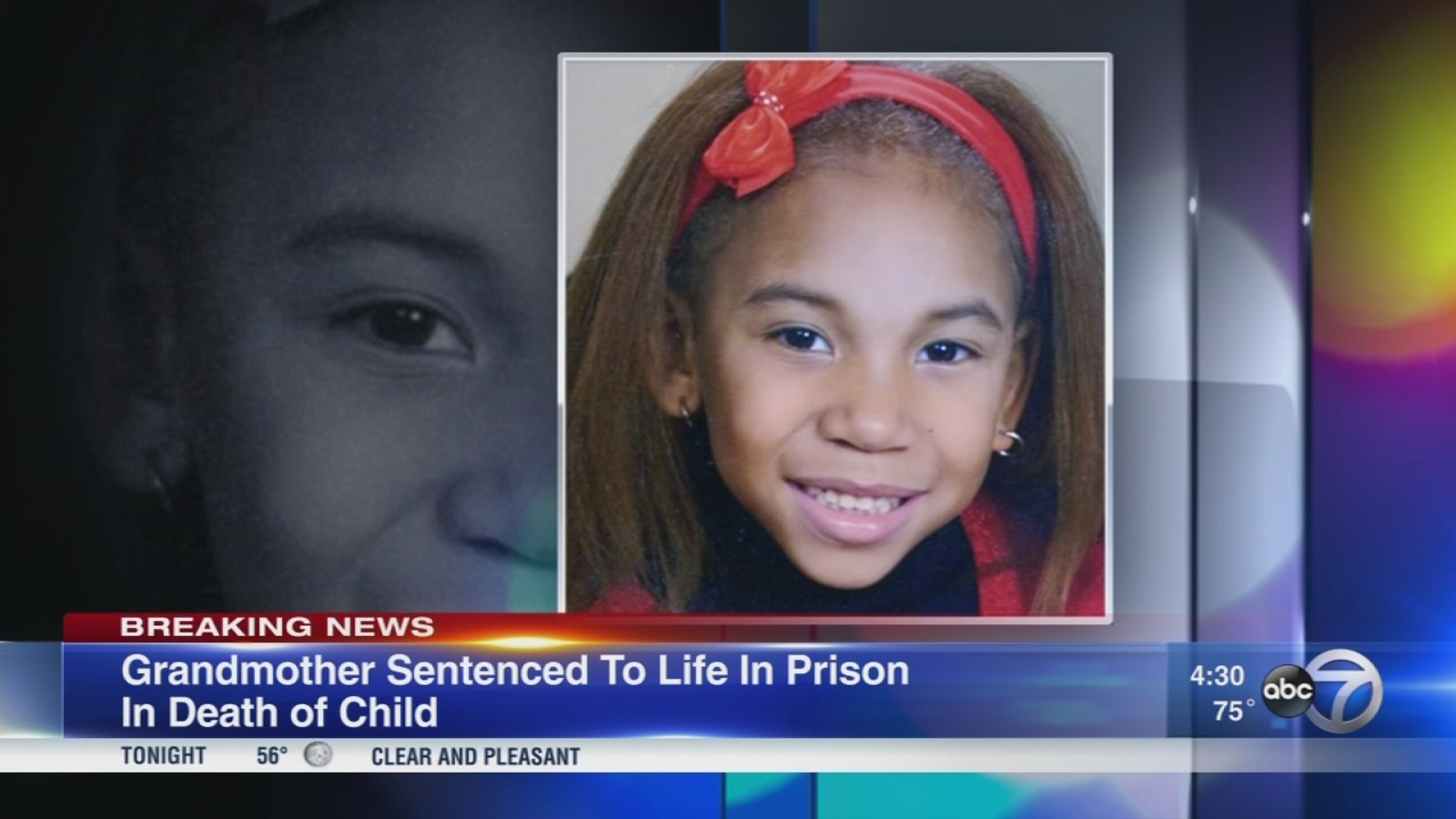Gizzell Ford: Remembering A Life And Reflecting On Care
The story of Gizzell Ford, a young life taken far too soon, remains a poignant reminder of the profound importance of care, protection, and the deep commitment we all share for the well-being of every individual. Her experience, though incredibly sad, really does prompt us to think about how we can make things better, especially for those who might be vulnerable. It's a call, in a way, for everyone involved in looking after others to consider their role with the utmost seriousness and kindness.
For those of us who work alongside hospitals as a trusted allied healthcare provider, like Specialtycare, providing essential clinical services and expert staffing to make things better in the operating room, Gizzell's story underscores the very human reason behind what we do. It’s about more than just medical procedures; it's about ensuring excellence in patient care where it matters most, helping people at their most vulnerable. So, too it's almost, this story, in a way, brings into sharp focus the human element of our mission.
This article aims to respectfully share Gizzell Ford's story, reflecting on its significance and drawing connections to the broader themes of patient care, safety, and the continuous effort to improve human health. We'll explore how her memory can inspire a deeper commitment to compassionate service, something that, you know, every healthcare professional strives for. It's about understanding the ripple effect of individual lives and how they shape our collective responsibility.
Table of Contents
- Biography of Gizzell Ford
- Personal Details and Bio Data
- The Impact and Lasting Significance
- Lessons for Care and Community
- The Role of Dedicated Care Providers
- Fostering a Culture of Compassion
- Frequently Asked Questions About Gizzell Ford
Biography of Gizzell Ford
Gizzell Ford was a young girl from Chicago whose life, tragically, came to an end far too soon in 2013. She was just eight years old, a time when most children are filled with curiosity and the joy of discovery. Her story, sadly, became a public case that shed light on the critical need for vigilance and protection for children, especially those in vulnerable circumstances. Her passing brought a lot of sadness and, in a way, sparked a broader conversation about child welfare systems and how we, as a society, look after our youngest members.
Her experience highlighted a very painful truth about the hidden struggles some children face. The details that emerged from her case were deeply disturbing, pointing to severe neglect and abuse. It's a stark reminder that while healthcare systems often focus on physical ailments, the broader well-being of a person, particularly a child, involves a safe and nurturing environment. Basically, her story became a symbol, in some respects, for the urgent need to address systemic failures that can leave children unprotected.
The aftermath of Gizzell's passing led to widespread public outcry and intense scrutiny of the systems meant to protect children. It prompted many to reflect on how communities, social services, and even healthcare providers might better identify and help children at risk. Her memory, in a way, serves as a powerful call to action, reminding everyone that ensuring the safety and positive development of every child is a shared responsibility, something that really does matter.
Personal Details and Bio Data
| Detail | Information |
|---|---|
| Full Name | Gizzell Ford |
| Date of Birth | Approximately 2005 |
| Date of Passing | July 12, 2013 |
| Age at Passing | 8 years old |
| Location | Chicago, Illinois, USA |
| Circumstances | Tragic passing due to abuse and neglect |
The Impact and Lasting Significance
The story of Gizzell Ford, while heartbreaking, has had a lasting effect on conversations around child welfare and the broader spectrum of patient care. Her case, in a way, became a touchstone for discussing how society identifies and responds to signs of distress in children. It brought into very sharp focus the idea that a child's health isn't just about their physical condition; it's also deeply tied to their safety and emotional well-being. This kind of holistic view, you know, is something that healthcare professionals are increasingly recognizing as absolutely vital.
What happened to Gizzell prompted many to really look closely at the gaps in protective services and how different agencies communicate. It highlighted the need for better collaboration among social workers, educators, law enforcement, and, yes, even healthcare providers, to form a stronger safety net. Because, as a matter of fact, when these systems work together, they are much better equipped to spot potential problems and step in before a situation becomes critical. It's about building a community where every child feels secure.
Her memory continues to resonate, reminding us of the profound vulnerability of children and the immense responsibility adults carry to safeguard them. It’s a powerful testament to the idea that every life has value and deserves protection, a principle that, frankly, underpins the very core of compassionate care. The ongoing discussion inspired by Gizzell's story helps to keep the focus on prevention and early intervention, which, in some respects, is where we can make the biggest difference.
Lessons for Care and Community
Gizzell Ford's story, while difficult to hear, offers some very important lessons for everyone, especially those of us dedicated to health and well-being. It underscores, very simply, the critical role of vigilance and empathy in our communities. We are all, in a way, part of a larger network of care, and sometimes, the smallest observation or concern can make a really big difference in someone's life, particularly a child's. It's about being present and paying attention to those around us, which, you know, is just a good thing to do.
From a healthcare perspective, her story reinforces the idea that patient care extends beyond the clinic or operating room. It's about recognizing the broader context of a person's life and understanding that social determinants can deeply affect health outcomes. Specialtycare, for instance, focuses on delivering essential clinical services and expert staffing to improve outcomes in the operating room, but the spirit of that mission — improving outcomes — also applies to the wider goal of ensuring every individual lives in a safe and healthy environment. So, in a way, it’s about applying that same dedication to the community at large.
The need for collaboration across different sectors is another key takeaway. When doctors, nurses, social workers, and community members work together, sharing information and resources, they create a much more robust system of support. This kind of teamwork is what helps hospitals maintain excellence in patient care, and it’s also what helps protect vulnerable members of our society. Honestly, it's about building bridges between different areas of expertise to serve a common, very important purpose.
The Role of Dedicated Care Providers
The commitment to exceptional care and positive patient outcomes is something that truly drives professionals in the healthcare field. This is who we are at Specialtycare: passionate, driven people dedicated to making a difference in healthcare. Gizzell Ford's story, while tragic, serves as a powerful reminder of why this dedication matters so much. It's about being there for patients, especially those who cannot speak for themselves or are in vulnerable situations, and ensuring they receive the best possible care and protection. That, you know, is a very profound responsibility.
Our focus on specialty care areas like perfusion, ECMO, intraoperative neuromonitoring, and sterile processing is about providing the highest level of clinical expertise where it's needed most. But the underlying principle is always about improving human health and finding ways to make lives better. Gizzell's experience, in a way, highlights the critical importance of every single person in the healthcare system, from the front-line clinician to the support staff, in contributing to a culture of safety and vigilance. Every role, basically, plays a part in the larger picture of patient well-being.
The pursuit of medical knowledge and the development of advanced therapies for chronic conditions, or even fresh treatments like those for schizophrenia, are all part of the ongoing effort to alleviate suffering and improve lives. This continuous strive to solve some of medicine’s toughest questions is rooted in a deep sense of compassion. The memory of Gizzell Ford, in some respects, reinforces the moral imperative behind this work – to ensure that every person, no matter their circumstances, receives the care and attention they deserve. It's about making sure that no one falls through the cracks, which, you know, is a really big goal.
Fostering a Culture of Compassion
Aspiring for each patient to feel loved, listened to, and cared for, even in the comfort of their home, is a core value that resonates deeply within the healthcare community. This feeling, you know, of genuine care and connection, is what truly defines a compassionate approach to medicine. Gizzell Ford's story, in a way, makes us reflect on how we can extend this compassion beyond the immediate patient interaction to the broader community, especially to those who might be overlooked or in distress. It’s about building a system where kindness is as important as clinical skill.
Investing in professional growth and success for clinicians, as Specialtycare does, is about empowering individuals to make an even greater difference in the operating room and beyond. This commitment to excellence and continuous improvement means that healthcare professionals are better equipped not only with technical skills but also with the awareness and sensitivity needed to identify and respond to complex situations. Because, as a matter of fact, the more knowledgeable and empathetic our care providers are, the better they can serve all patients, particularly those who are most vulnerable.
Ultimately, the enduring lesson from Gizzell's story is the power of collective responsibility and the profound impact of dedicated care. It reminds us that while medical breakthroughs and advanced technologies are vital, the human touch – the willingness to see, to hear, and to act with kindness – is truly irreplaceable. This is what helps us make sure that every individual, regardless of their background or situation, receives the care and protection that is their right. Learn more about our commitment to patient care on our site, and understand how we bring specialized services to hospitals, working to improve outcomes every single day.
Frequently Asked Questions About Gizzell Ford
What happened to Gizzell Ford?
Gizzell Ford, a young girl from Chicago, tragically passed away in 2013 at the age of eight. Her passing was linked to severe abuse and neglect, which, you know, brought a lot of sadness and public attention to issues of child welfare. Her case became a very prominent example of the urgent need for better protection for vulnerable children.
Why is Gizzell Ford's story significant?
Gizzell Ford's story holds significant importance because it highlighted critical failures in child protective systems and sparked widespread discussions about child abuse prevention and the responsibility of communities to safeguard children. It served as a powerful call to action for improved vigilance and support for children at risk, which, you know, is a really important conversation to have.
How can Gizzell Ford's story relate to healthcare?
While Gizzell Ford's case was primarily about child welfare, it relates to healthcare by underscoring the broader importance of patient safety, the identification of vulnerability, and the holistic well-being of individuals. Healthcare professionals often encounter patients who may be experiencing difficult circumstances, and her story reminds us of the critical role of compassionate care and vigilance in ensuring positive outcomes for all, which, basically, is what we aim for every day.
:max_bytes(150000):strip_icc():focal(749x0:751x2)/gizzell-ford-2-1-c450f38534a946d1bc9e32224839d39f.jpg)
Neighbor of Chicago Grandma Who Tortured Granddaughter Speaks

Chicago grandmother Helen Ford gets life in prison in 8-year-old

Jury: Gizzell Ford's family gets $48M in lawsuit over girl's torture